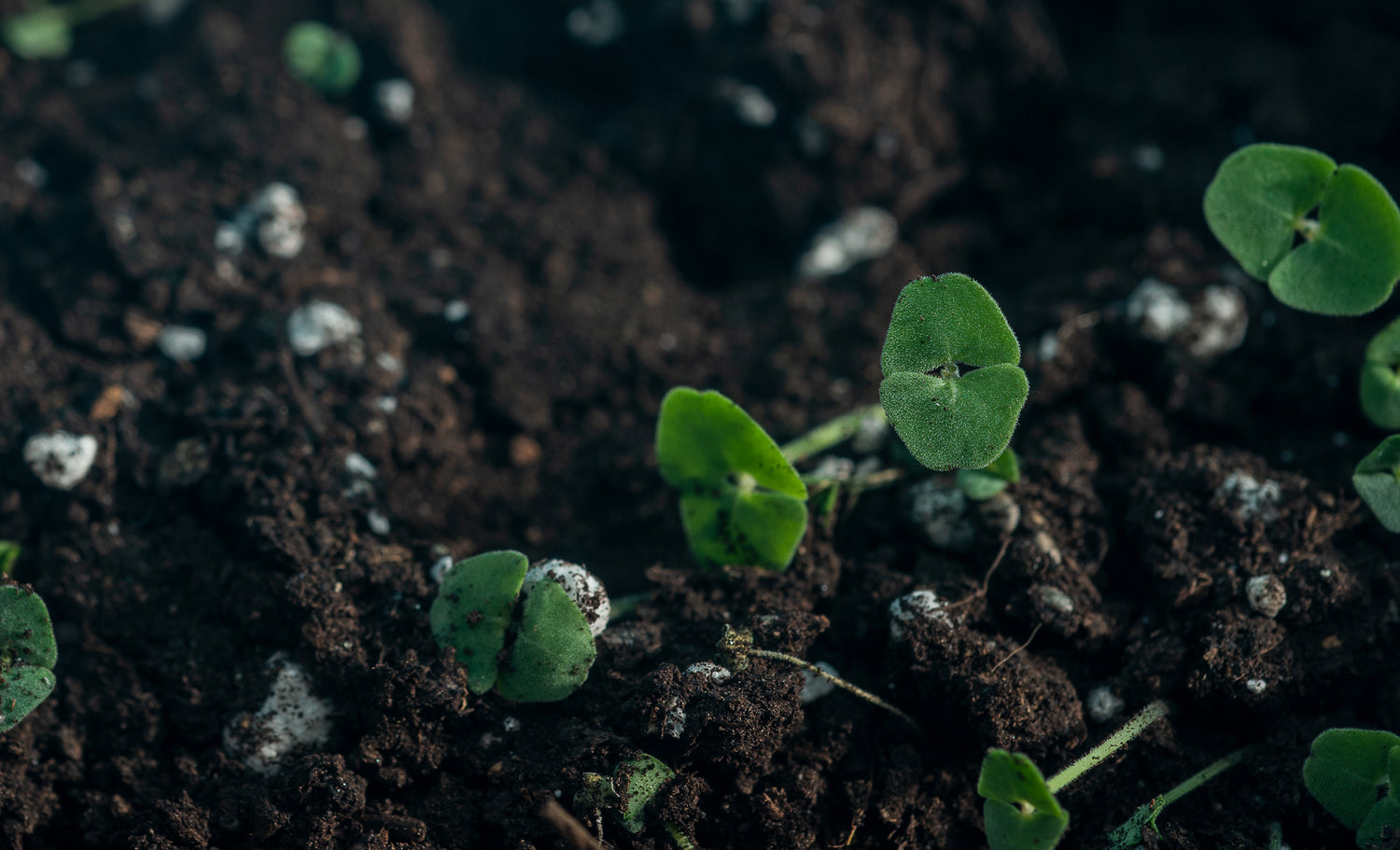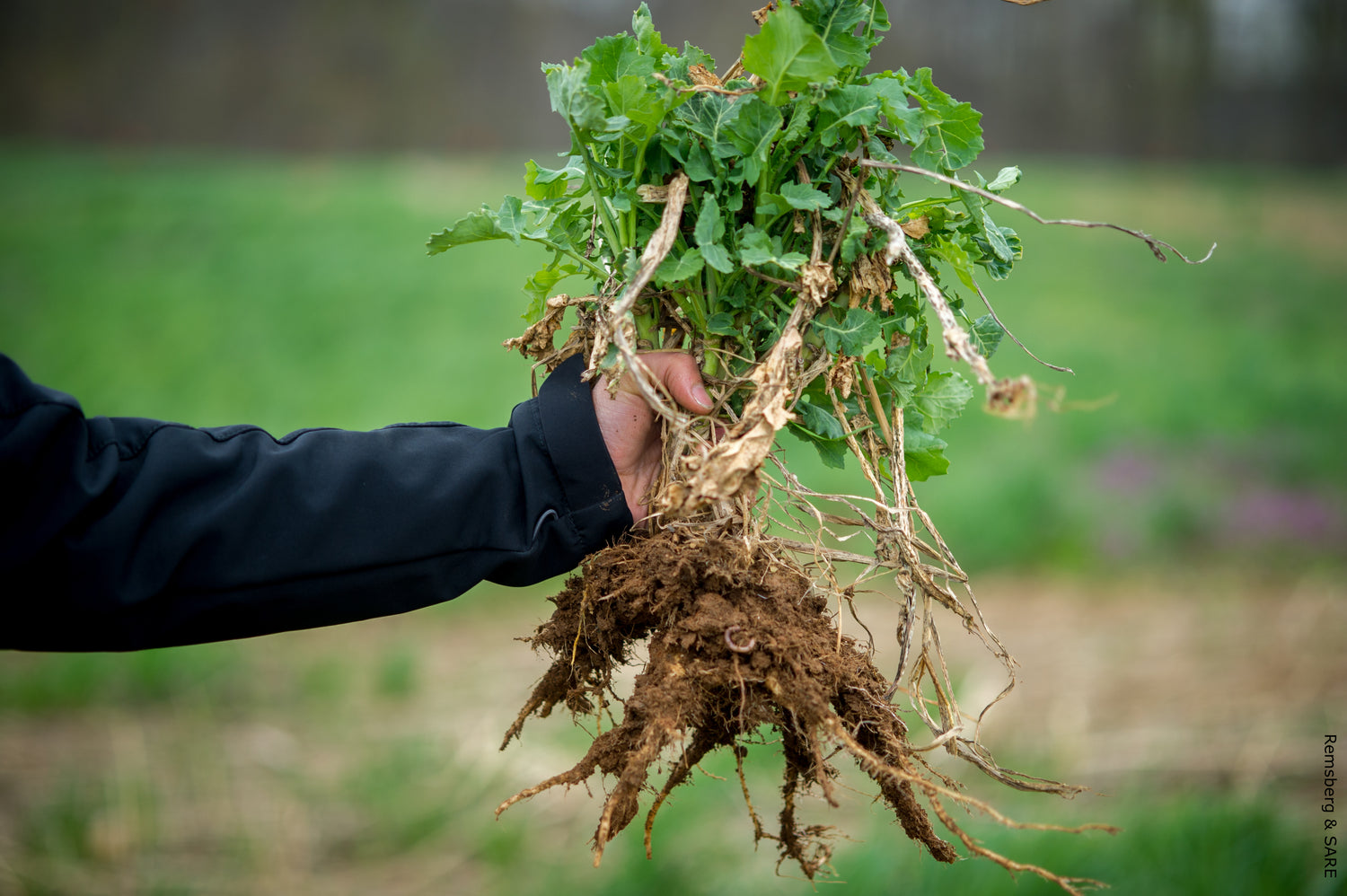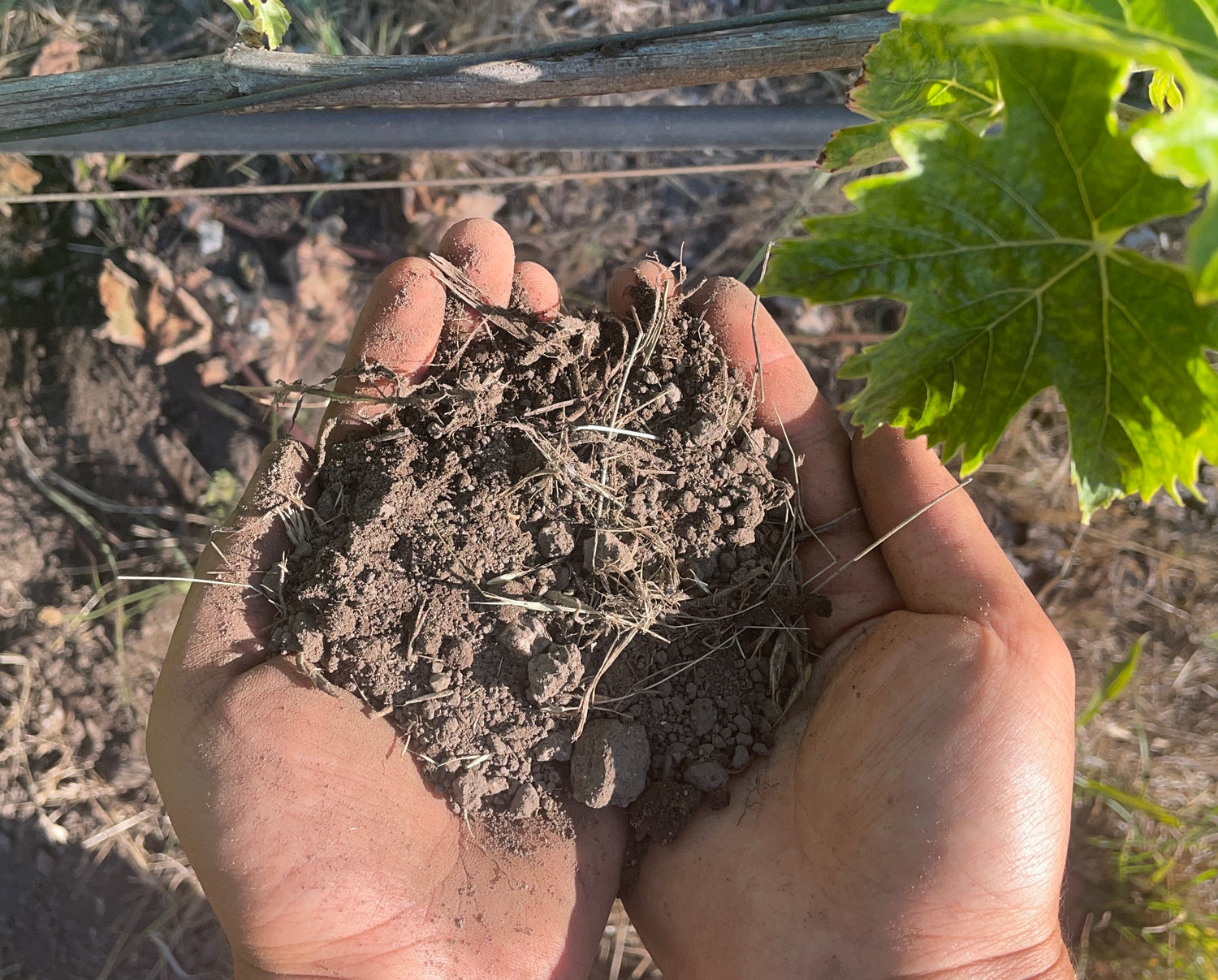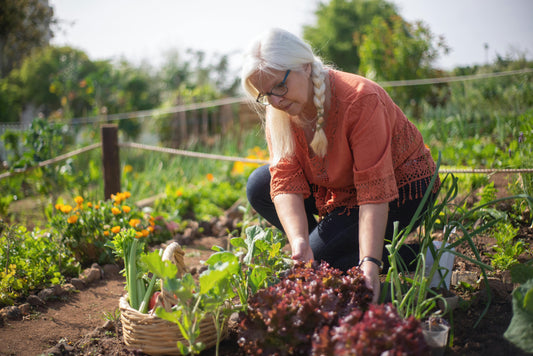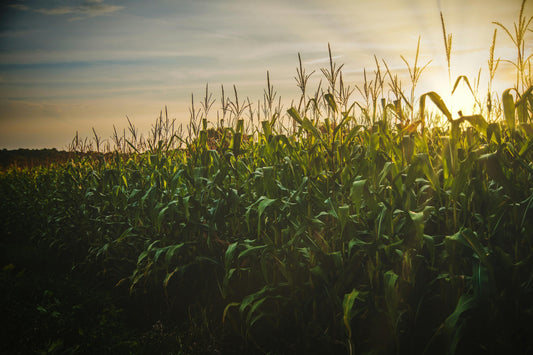Professional soil testing reveals the hidden chemistry that determines your garden's success, with accuracy ranging from laboratory-grade precision to basic guidance depending on your chosen testing method. Smart gardeners combine quick home testing for ongoing monitoring with comprehensive professional analysis for optimal soil management decisions.
The Ultimate Soil Test Kit Buyer's Guide 2025: Find Your Perfect Kit in 30 Seconds
Bottom Line: The best soil test kit depends on your accuracy needs and budget. Professional services like Alluvial Soil Lab ($66-$258) provide laboratory-grade results with detailed recommendations, while quality home kits like LaMotte (94% accuracy) offer convenient ongoing monitoring for $25-75.
📊 Interactive Soil Test Kit Comparison Matrix
Compare 50+ soil test kits side-by-side with real-time filtering:
| Product Name | Price | Tests Included | Type | Turnaround | Best For |
|---|---|---|---|---|---|
| Alluvial Soil Lab - Complete Soil Health Test | $162+ | pH, NPK, 15+ nutrients, organic matter, CEC, microbes | Professional Lab | 4-8 business days | Comprehensive analysis + custom recommendations |
| Alluvial Soil Lab - Heavy Metals | $106+ | Lead, arsenic, cadmium, mercury, 9 total metals | Professional Lab | 4-8 business days | Safety assessment for food gardens |
| Alluvial Soil Lab - Full Chemistry Test | $109+ | pH, NPK, secondary nutrients, organic matter | Professional Lab | 4-8 business days | Detailed nutrient analysis |
| Alluvial Soil Lab - Basic Soil Health Test | $66+ | pH, NPK, organic matter, basic recommendations | Professional Lab | 4-8 business days | Essential analysis for beginners |
| Alluvial Soil Lab - Haney Test | $238+ | Biological activity, soil respiration, nutrient cycling | Professional Lab | 4-8 business days | Holistic soil health assessment |
| Alluvial Soil Lab - WELO Soil Management Report | $187+ | Water, energy, labor optimization analysis | Professional Lab | 4-8 business days | Farm efficiency optimization |
| Alluvial Soil Lab - Vineyard Soil Health Test | $170+ | pH, nutrients, vineyard-specific recommendations | Professional Lab | 4-8 business days | Grape production optimization |
| MySoil Complete Kit | $149 | pH, NPK, 10+ nutrients, organic matter | Mail-in Lab | 7-10 days | Home gardener comprehensive analysis |
| MySoil Basic Test | $89 | pH, NPK, organic matter | Mail-in Lab | 7-10 days | Essential nutrient testing |
| Yard Mastery Soil Test | $49 | pH, NPK, organic matter, lime needs | Mail-in Lab | 5-7 days | Lawn and turf optimization |
| LaMotte Soil Test Kit | $75 | pH, NPK (40 tests included) | Chemical Home Kit | Instant | Most accurate home testing |
| Rapitest Digital Soil Tester | $45 | pH, NPK (10 tests included) | Chemical Home Kit | Instant | Reliable home testing |
| Hanna Instruments HI99121 | $89 | pH only (professional grade) | Digital Meter | Instant | Professional pH monitoring |
| Sonkir 3-in-1 Meter | $25 | pH, moisture, light | Digital Meter | Instant | Budget monitoring |
| Quick Soiltest Kit | $22 | pH, NPK (25 tests) | Chemical Home Kit | Instant | Basic home testing |
| Nitty-Gritty Soil Kit | $18 | pH, NPK (20 tests) | Chemical Home Kit | Instant | Very basic testing |
| Generic pH Strips | $12 | pH only (100 strips) | Test Strips | Instant | pH indication only |
🔍 Interactive Soil Problem Diagnostic Tool
Identify what's wrong with your soil and get testing recommendations:
What symptoms are you seeing in your plants?
What type of plants are affected?
Understanding Soil Testing Accuracy: The Science Behind the Numbers
The most critical factor when choosing a soil test kit is understanding accuracy limitations. Montana State University Extension research reveals significant accuracy variations between different kit types, with published research in HortTechnology showing accuracy rates ranging from 33% to 94% compared to professional laboratory results.
Laboratory-Grade Professional Testing
Alluvial Soil Lab offers multiple professional testing tiers with laboratory-grade accuracy. Their Complete Soil Health Test ($162+) provides comprehensive analysis including pH, NPK, 15+ additional nutrients, organic matter, cation exchange capacity, and soil biological activity measurements. This testing matches university research facility standards for accuracy.
✅ Professional Lab Testing Advantages:
- Laboratory-grade accuracy with research equipment
- Detailed interpretation and custom recommendations
- EPA-approved methods for heavy metal testing
- Soil biology and health assessments available
- Crop-specific fertilizer recommendations
❌ Professional Lab Limitations:
- Higher upfront cost ($66-$258)
- 4-8 business day turnaround time
- Requires shipping soil samples
- Not suitable for frequent monitoring
The Alluvial Soil Lab Basic Soil Health Test ($66) provides good value for first-time soil testing, offering essential pH, NPK, and organic matter analysis with professional accuracy. For specialized needs, their Heavy Metals test ($106) uses EPA-approved methods to detect lead, arsenic, cadmium, and other contaminants—important for urban gardens and food production areas.
Premium Home Testing Solutions
MySoil bridges the gap between professional laboratory testing and home convenience. Their Complete Kit ($149) provides laboratory analysis with results comparable to university extension services, while their Basic Test ($89) covers essential nutrients for most gardening needs. Both options include detailed reports with amendment recommendations tailored to your specific plants and local growing conditions.
Yard Mastery specializes in lawn and turf optimization, offering comprehensive soil analysis for $49 with 5-7 day turnaround. Their testing focuses specifically on parameters critical for grass health, including optimal pH ranges for different turf species and precise fertilizer recommendations for seasonal feeding programs.
High-Accuracy Home Test Kits
The LaMotte Soil Test Kit ($75) stands out as the most accurate home testing option, achieving 94% correlation with laboratory results in university studies. This chemical-based system includes 40 individual tests for pH and NPK, using professional-grade reagents and colorimetric analysis methods similar to those used in research laboratories.
Rapitest Digital Soil Tester ($45) offers 92% accuracy in a more affordable package, providing 10 tests each for pH, nitrogen, phosphorus, and potassium. University of New Hampshire Extension research confirms that quality chemical test kits like Rapitest can provide reliable guidance for basic soil management decisions.
Digital pH Meters: Precision vs Convenience
Digital soil pH meters offer precise measurements for ongoing monitoring, with professional-grade options providing research-quality data. The Hanna Instruments HI99121 ($89) represents the professional standard, featuring a specialized soil probe designed specifically for direct soil measurement with ±0.1 pH accuracy.
Soil pH testing research demonstrates that meter accuracy depends heavily on proper calibration and soil preparation. Professional meters like the Hanna unit include calibration solutions and detailed protocols for reliable measurements, while budget meters often lack these essential accessories.
🛠️ Digital Meter Troubleshooting Guide
- Inconsistent readings: Clean probe with distilled water, recalibrate with buffer solutions
- Stuck at pH 7.0: Probe may be dry or contaminated—moisten soil and clean probe thoroughly
- Wildly varying results: Soil may be too dry or compacted—add distilled water and wait 15 minutes
- Probe damage: Avoid forcing into rocky or hard-packed soil—pre-moisten testing area
📹 Video Test Demonstrations
Watch step-by-step demonstrations of popular soil testing methods:
🎥 Rapitest Kit Testing Process
Complete walkthrough by Gardenerd showing step-by-step soil testing with the popular Rapitest kit
Watch Demo🎥 Professional Soil Sampling Techniques
OSU Extension Master Gardener demonstrates proper soil sampling methods
Watch Demo🎥 pH Meter Calibration Guide
Professional techniques for accurate pH meter calibration and maintenance
Watch GuideHeavy Metal Testing: Protecting Your Family's Health
Heavy metal contamination poses serious health risks, particularly in urban areas and sites with unknown soil history. University of New Hampshire Extension research emphasizes that lead contamination is the most common concern, with the potential to exceed health-based guidance values in urban gardens nationwide.
The EPA's new "artificial stomach" testing method revolutionizes heavy metal risk assessment by measuring bioavailability—how much contamination actually becomes available for human absorption. This breakthrough technology can reduce remediation costs by millions of dollars while providing more accurate health risk assessments.
Alluvial Soil Lab's Heavy Metals test ($106) uses EPA-approved methods to detect nine different metals including lead, arsenic, cadmium, chromium, copper, mercury, nickel, selenium, and zinc. This comprehensive analysis provides peace of mind for families growing food in urban environments or areas with unknown soil history.
🗓️ Seasonal Soil Testing Strategy
Optimize your testing schedule for maximum garden success:
🍂 Fall Testing (September-November)
- Comprehensive annual soil analysis
- Plan lime applications (takes 6+ months)
- Order amendments for spring
- Test new garden areas
❄️ Winter Planning (December-February)
- Review test results and plan improvements
- Research plant varieties for your soil type
- Order seeds based on pH requirements
- Plan garden layout changes
🌱 Spring Monitoring (March-May)
- Quick pH checks after lime applications
- Test nitrogen levels before fertilizing
- Monitor new planting areas
- Adjust fertilizer based on early growth
☀️ Summer Maintenance (June-August)
- Monitor plants for deficiency symptoms
- Test container gardens monthly
- Check pH if plants show stress
- Plan fall soil improvements
Understanding Test Results: Making Smart Amendments
Oregon State University's soil test interpretation guide emphasizes that understanding results requires knowledge of optimal ranges for specific plants and local soil conditions. Most university extension services provide interpretation assistance, translating test data into actionable fertilizer and amendment recommendations.
University of Florida Extension research shows that soil test results provide baseline information, but recommendations must consider local climate, soil type, and intended crops. Professional services like Alluvial Soil Lab excel at providing crop-specific recommendations that account for regional growing conditions.
Cost-Benefit Analysis: Making Smart Testing Decisions
Fine Gardening research demonstrates that spending $66-109 on accurate professional analysis often provides better long-term value than relying on potentially inaccurate home kit results that could lead to fertilizer waste, environmental damage, or crop failures.
For ongoing monitoring, combining annual professional testing with quality home pH monitoring provides optimal cost-effectiveness. The LaMotte kit's 94% accuracy makes it ideal for frequent monitoring, while professional analysis ensures comprehensive nutrient management.
Specialized Testing for Specific Needs
Alluvial Soil Lab's WELO Soil Management Report ($187) offers advanced analysis for water, energy, labor, and operation optimization—useful for market gardens and small farms seeking efficiency improvements. Their Vineyard Soil Health Test ($170) addresses grape production needs, including pH optimization for different varietals and nutrient management considerations.
The Holistic Soil Health Assessment (Haney Test) ($238) provides advanced soil biology analysis, measuring soil respiration, biological activity, and nutrient cycling. This research-grade testing offers insights into soil ecosystem health that traditional chemical analysis cannot provide, though it comes at a premium price point.
When to Choose Professional vs Home Testing
Virginia Tech's soil testing laboratory processes over 50,000 samples annually, providing computer-generated recommendations within three working days. Professional laboratory testing becomes essential for new garden sites, persistent plant problems despite amendments, commercial operations, or suspected contamination.
University of New Hampshire Extension recommends professional testing when accuracy is critical—such as establishing new orchards, commercial vegetable production, or managing problematic soils with extreme pH or contamination concerns.
🎯 Soil Test Kit Finder - Get Your Perfect Match!
Answer 5 questions to find your ideal soil testing solution:
1. What's your primary growing focus?
2. What's your main soil concern?
3. What's your budget range?
4. How often do you plan to test?
5. How quickly do you need results?
Making Your Final Decision
The optimal soil testing strategy depends on your specific needs, budget, and accuracy requirements. For comprehensive initial assessment, professional services like Alluvial Soil Lab provide unmatched accuracy and detailed recommendations. For ongoing monitoring, quality home kits like LaMotte offer reliable, cost-effective solutions.
Consider starting with professional baseline testing to understand your soil's fundamental characteristics, then using home testing for seasonal monitoring and adjustments. This approach maximizes both accuracy and cost-effectiveness while ensuring optimal soil management for healthy, productive gardens.
⚠️ Important Disclaimer
This guide is for informational purposes only. We do not guarantee the accuracy of product information, prices, or testing results. Soil testing recommendations are general guidance only and may not be suitable for your specific situation. We are not liable for any decisions made based on this information, including product purchases or soil management actions. Always consult with local extension services or soil professionals for site-specific advice. Prices and product specifications may change without notice. Test results can vary based on sampling methods, soil conditions, and testing procedures.
Sources
- Montana State University Extension. Soil Testing: Test Kits vs Lab. https://landresources.montana.edu/soilfertility/soilscoop/ss_soiltestkits.html
- HortTechnology Journal. Accuracy Varies for Commercially Available Soil Test Kits. https://journals.ashs.org/horttech/view/journals/horttech/17/3/article-p358.xml
- University of New Hampshire Extension. Are Garden Soil Test Kits a Good Alternative to Lab Testing? https://extension.unh.edu/blog/2020/04/are-garden-soil-test-kits-good-alternative-lab-testing
- Penn State Extension. Soil Testing. https://extension.psu.edu/soil-testing
- University of Maryland Extension. Soil Testing and Soil Testing Labs. https://extension.umd.edu/resource/soil-testing-and-soil-testing-labs
- Virginia Tech Soil Testing Laboratory. https://www.soiltest.vt.edu/
- Cornell Soil Health Laboratory. Soil Heavy Metal Testing. https://soilhealthlab.cals.cornell.edu/testing-services/soil-heavy-metal-testing/
- Oregon State University Extension. Soil Test Interpretation Guide. https://extension.oregonstate.edu/catalog/ec-1478-soil-test-interpretation-guide
- University of New Hampshire Extension. Soil Testing for Environmental Contaminants. https://extension.unh.edu/resource/soil-testing-environmental-contaminants-interpreting-your-heavy-metals-test-results-fact
- US EPA. New Testing Method for Lead and Arsenic in Contaminated Soil. https://www.epa.gov/sciencematters/new-testing-method-lead-and-arsenic-contaminated-soil-saves-money-and-protects
- University of Florida Extension. Soil Testing. https://sfyl.ifas.ufl.edu/agriculture/soil-testing/
- Colorado State University Extension. Soil Testing. https://extension.colostate.edu/topic-areas/agriculture/soil-testing-0-501/
- Fine Gardening. Soil-Testing Basics: The ABCs of NPK. https://www.finegardening.com/project-guides/gardening-basics/soil-testing-savvy







